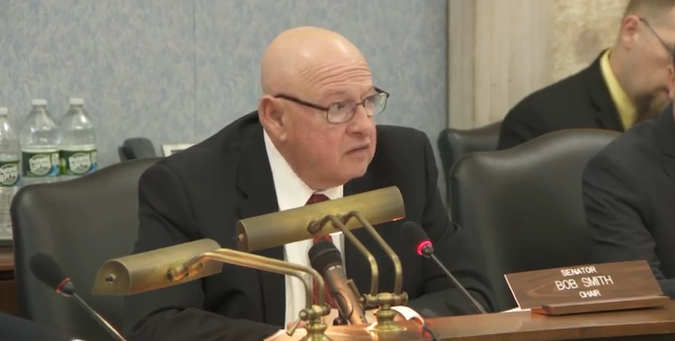Smith, Greenstein Bill Banning Single-Use Plastics Passes Committee

Smith, Greenstein Bill Banning Single-Use Plastics Passes Committee
Trenton – Legislation sponsored by Senate Environment and Energy Committee Chair Senator Bob Smith and Senate Environment and Energy Committee Vice-Chair Senator Linda Greenstein, which would prohibit stores and food service businesses from providing single-use plastic bags, paper bags and polystyrene foam cups and food containers to their customers, passed the Senate Budget and Appropriations Committee today.
The bill, S-2776, would place a ban on single-use plastics and paper bags, which would take effect one year from its signing, while the ban on polystyrene containers would go into effect two years after enactment.
“We cannot afford to wait any longer to act while our waterways and ecosystems suffer,” said Senator Smith (D-Middlesex/Somerset). “The amount of plastic in our oceans will soon outweigh all of the fish in the ocean combined. Plastic bag bans have proven effective elsewhere. Los Angeles saw a ninety-four percent drop in single-use bags. This legislation is us fighting back to ensure we have clean oceans, clean ecosystems and to evolve our habits to include safe alternatives for our environment.”
While the bill would not ban plastic straws outright, instead they would only be available upon request, with the goal of promoting paper straws.
Beach sweeps from Monmouth County to Cape May County discovered microplastics in the ocean and on the beach. In 2017, these sweeps found that more than 80 percent of the beaches’ trash was plastic.
In 2018, experts from various organizations’, including Rutgers and Princeton Universities, participated in a committee meeting with the Senate Environment and Energy Committee and the Assembly Environment and Solid Waste Committee to discuss the issues of single-use plastics and plastic waste. One of the topics discussed was the dangers of microplastics. Studies have revealed that when plastics break down over time they become tiny microplastics.
“The numbers don’t lie and if you have been to the beach you can see it with your own eyes,” said Senator Greenstein (D-Mercer/Middlesex). “There are an estimated 150 tons of plastics currently in our oceans and about eight-million additional tons enter each year. The EPA estimated that Americans disposed of more than 33 million tons of plastic in 2014, and most of it wasn’t recycled. It is irresponsible and inexcusable to not utilize alternatives over plastic. We need to stop the damage now.”
Those in violation of any provision of the bill would be subject to a warning for a first offense, up to $1,000 for a second offense, and up to $5,000 for a third or subsequent offense. The Department of Environmental Protection (DEP), municipalities and counties certified under the “County Environmental Health Act” would have the authority to enforce the provisions of the bill. All penalties collected would go to the existing Clean Communities Fund.
The state would be required to establish a program to assist businesses with complying with provisions of the bill.
The DEP would establish a permanent Plastics Advisory Council to annually evaluate the implementation of the act, study health impacts of plastics and alternatives to plastics, and recommend ways to reduce the use of plastics and the amount of plastics entering the environment and increase the rate of recycling of plastics.
Eight states have banned single-use plastic bags, including California, New York, Vermont, Connecticut, Delaware, Oregon, Maine and Hawaii. Major cities including Boston, Los Angeles, Seattle and Minneapolis. Maine, Maryland and Vermont have passed laws banning polystyrene food service products, as well as countless municipalities across the country.
The bill released from committee by a vote of 7-4-1.





